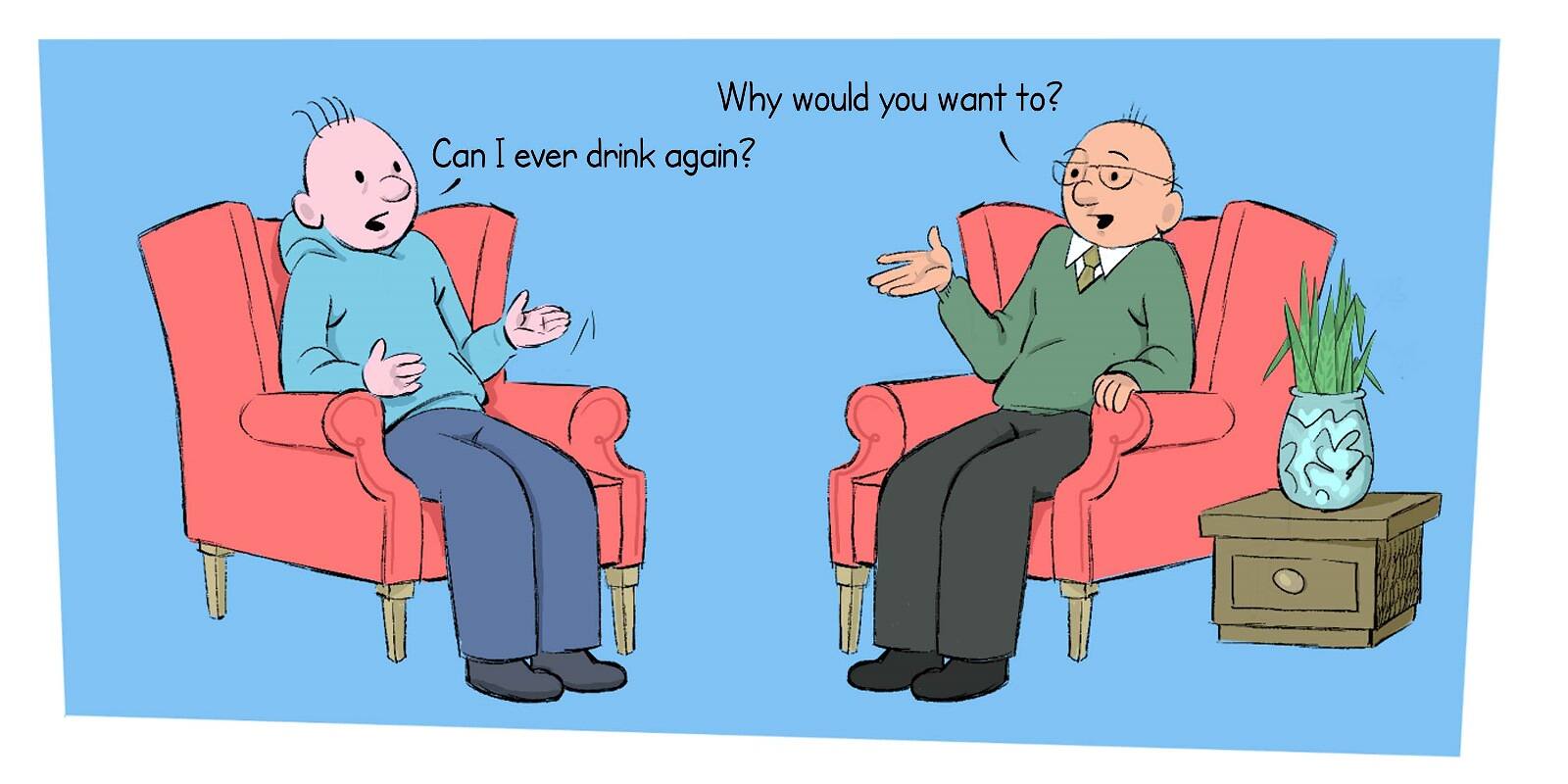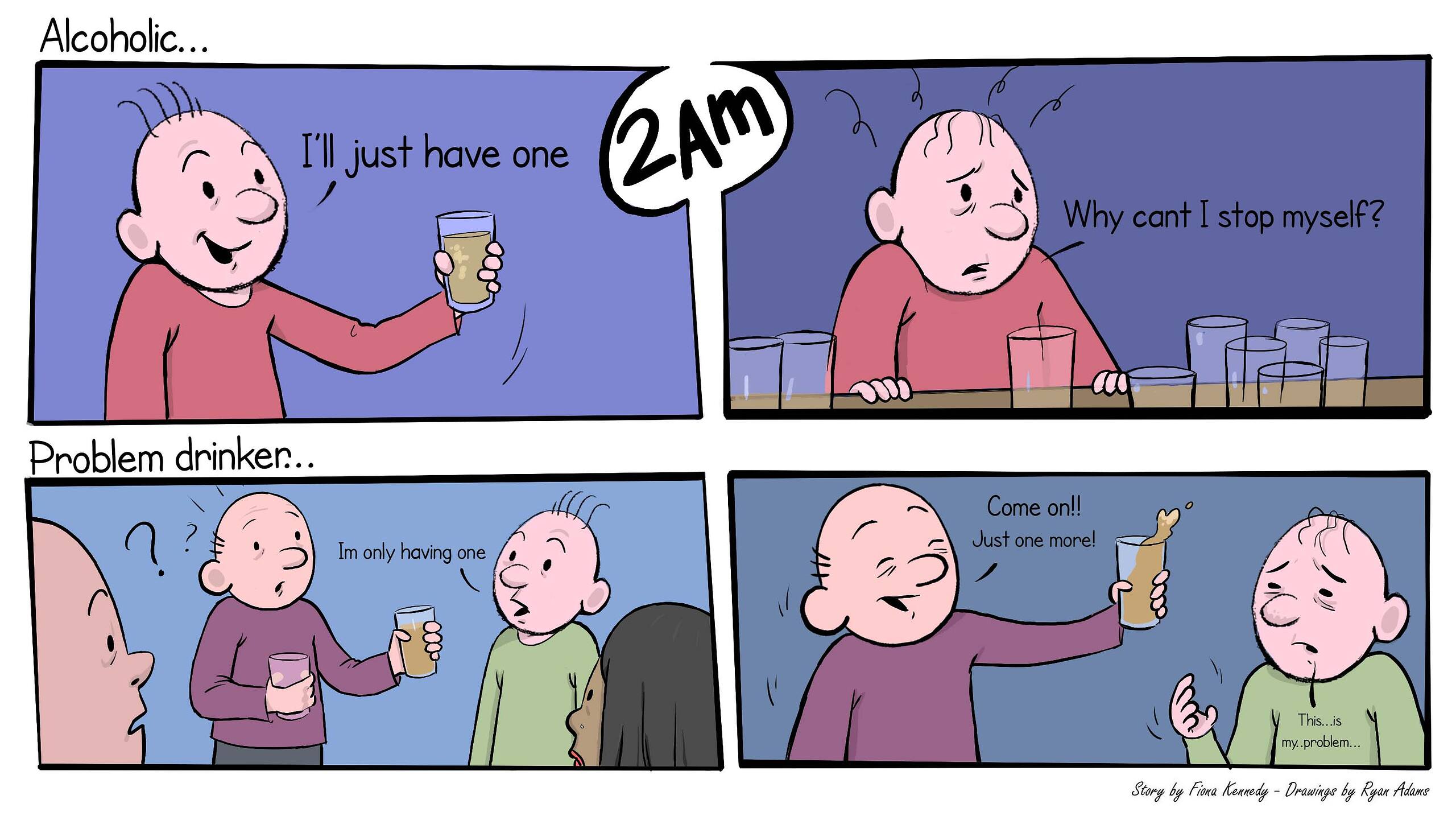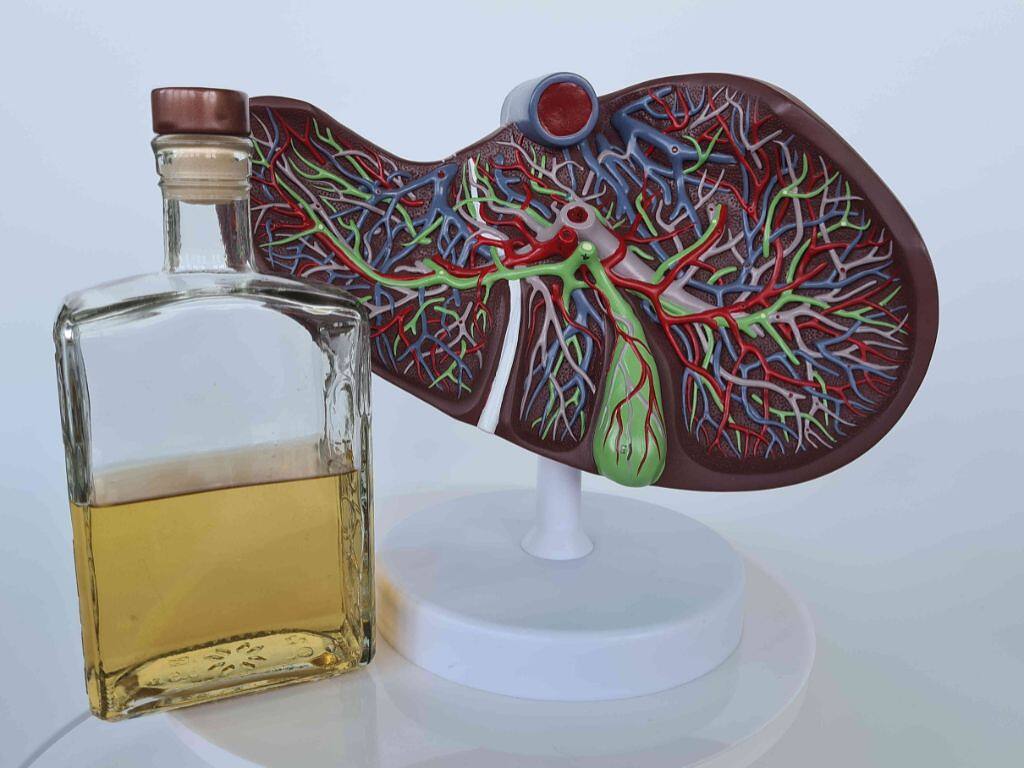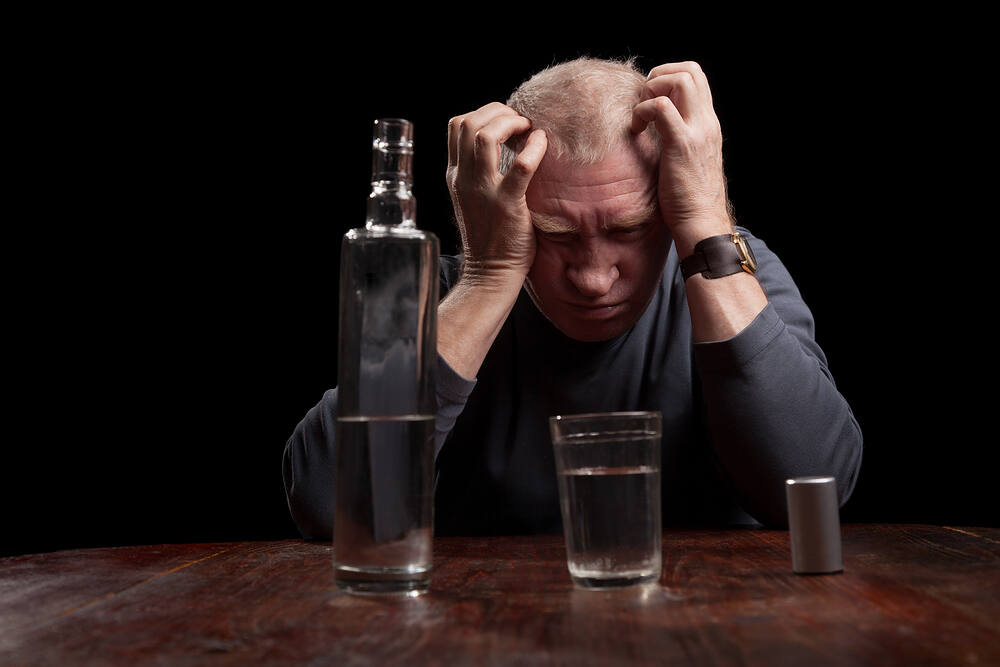
The idea that alcoholics have to give up drinking forever can be a real stumbling block for many people when starting recovery. It’s a common question among those who have struggled with alcohol addiction, can alcoholics drink again?
Facing never being able to have a social drink again is tough so it is natural to be curious if you will ever be able to do this.
We explore the reasons why alcoholics can’t drink moderately and the difference between problem drinkers and alcohol addicts.
 John – An Alcoholic
John – An Alcoholic
[su_note note_color=”#d2f0d8″ text_color=”#333333″]”My friends often ask me if I really need to be tee-total. Surely after 20 years sober, I could join everyone for a pint after a round of golf? Three times I thought I could, even fell off the wagon after 10 years sober. Sat in the rehab reception in tears, wondering how on earth I ended up back here again for the sake of a pint.”[/su_note]
Alcoholic VS Problem Drinker
It can be hard to decide if you are truly an alcoholic or a problem drinker. Some of the signs and symptoms are the same but there are some fundamental differences. Denial can blur the lines, however, leaving you wondering if you are convincing yourself your problem isn’t that bad.
In the end that is a concern for later. The easiest way to deal with both alcoholism and problem drinking is to completely stop drinking for a period of time. Whether you are able to do this with a change of lifestyle, counselling or needing rehab to help you will tell you a lot about your future drinking options.
Alcoholism vs. Problem Drinking
| Alcoholic | Problem Drinker |
| You can’t stop drinking once you start | Recognise problem |
| Keep drinking despite the negative consequences | Have a definite reason why you drink too much, e.g. peer pressure, stress, habit |
| Looking for an excuse or reason to drink | Only drink too much in certain circumstances |
| Denial of problem | Withdrawal symptoms |
| Withdrawal symptoms when you stop drinking | Stops despite withdrawal and cravings |
| Try and fail to stop drinking several times | Can reduce drinking long-term without relapsing |
When You Can’t Stop Drinking
Being unable to control your drinking is one of the worst and most frightening symptoms of alcoholism. The cycle of intending to stop but ending up drunk again is well-documented by both problem drinkers and alcoholics.
The difference is that problem drinkers can often identify a solid reason why they drink too much and may be able to control themselves once this is eliminated or avoided.

I used to drink so much when I was onshore, I’d be sitting shaking when I had to stop for work. I had to get a detox with a prescription to stop drinking without the shakes and depression. Counselling helped me realise I was drinking to fit in and so I wouldn’t be lonely. I decided to stop hanging around with my colleagues getting drunk and try dating and starting a family. I hardly drink now, maybe the odd beer, but I have kids to look after now, so I’m too busy!
Withdrawal Symptoms
You don’t need to be an alcoholic to experience withdrawal symptoms. These are largely physical reactions your body has to stop drinking when you have been using it too much regularly. Your brain changes how much of certain chemicals to produce and your metabolism adjusts to deal with removing it regularly from your body.

Symptoms can Include:
- Insomnia
- Depression
- Anxiety
- Seizures
- Shaking
- Vomiting
- Hallucinations
- Headaches
- Cravings
These symptoms can be relieved with medication although this is not always available from your GP as the NHS is reluctant to offer detox medications widely. A private home detox is an option for anyone who is experiencing withdrawal symptoms from alcohol.
Withdrawal symptoms are one the common experiences of both problem drinkers and alcoholics and having them doesn’t make you an alcoholic but their absence does not mean you are safe from addiction.

Living Without Alcohol
Alcohol is all around us in the UK, and living with the fact that you can never drink again is an ongoing challenge for those with alcoholism. There are many ways to deal with the temptation of alcohol and situations where you will have to resist. The medical profession firmly agrees that people with alcohol addiction should never drink again.
The risk of cravings, relapse and depression are all high in people who return to drinking even after long periods of sobriety. Rehab and counselling will establish a plan for you and how to deal with a lifetime of sobriety. If you or a loved one need advice on getting or staying sober call us today on 02072052734 and our experts will help.


